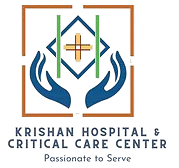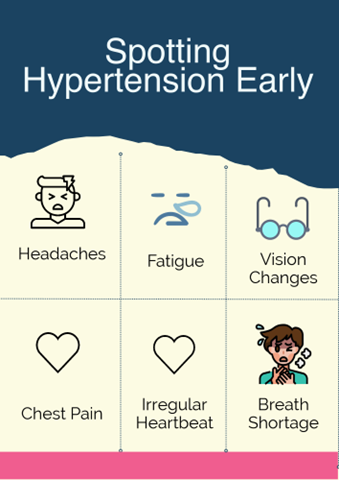High blood pressure, or hypertension, sneaks into lives unnoticed. It’s dubbed the silent killer for a reason. Understanding hypertension symptoms and how they affect health is vital. Knowing these signs helps in recognizing and managing risks early. This guide aims to clarify these symptoms and their impact.
Defining Hypertension and Its Prevalence
Hypertension means having high blood pressure. It’s becoming more common in Indian society. As life becomes busier and diets change, more people face the threat of high blood pressure.
In India, hypertension affects millions, and the numbers are rising. With changing lifestyles and increasing stress, high blood pressure is becoming a common health issue. That’s why understanding the signs of hypertension is important.
Detecting hypertension symptoms early is crucial. It helps in keeping potential health problems at bay. Early recognition means fewer risks of heart ailments, strokes, and other serious health issues.
A proactive approach to managing blood pressure begins with knowing the signs. Recognizing these symptoms means you can seek help and make necessary lifestyle changes. It becomes easier to stay informed, monitor your health, and seek timely treatment.
Hypertension can be managed with knowledge and the right actions.
Decoding Hypertension Symptoms: What to Watch Out For!
Recognizing hypertension symptoms can be challenging. They often remain unnoticed until a serious health problem arises. Here are a few key signs to watch for:
- Headaches: Frequent headaches, especially in the morning, can be a sign of high blood pressure.
- Dizziness: Feeling light-headed or dizzy is another common symptom that many ignore.
- Unexplained tiredness: Fatigue without an obvious cause must not be overlooked.
- Frequent confusion: Difficulty in concentrating or memory problems might be linked to high blood pressure.
Hypertension doesn’t always show symptoms. Hence, routine health checks are important. Regular monitoring helps in catching these signs early and prevents complications.
When visiting a doctor, they may check blood pressure readings often. This checks whether levels stay within a healthy range. Keeping blood pressure under control helps prevent further health troubles.
Awareness of these symptoms allows for timely action and better health management. Remember, even subtle signs demand attention. Early detection and treatment of hypertension can wholly change its impact. Always keep an eye out for unusual health patterns and consult healthcare providers as needed.
The Role of Lifestyle in Hypertension
Lifestyle plays a significant role in developing high blood pressure. Poor diet, inactivity, and stress are leading factors. Let’s look into how these affect your health:

- Diet and Sodium Intake: Eating salty foods can lead to high blood pressure. Sodium contributes significantly to hypertension. Opt for fresh foods and avoid processed options.
- Obesity: Excessive weight dramatically increases the risk of hypertension. Maintaining a healthy weight is crucial in managing blood pressure. More movement and balanced meals help in achieving a healthy physique.
- Inactivity: Sitting for long hours without physical activity contributes to blood pressure woes. Regular exercises, like walking or cycling, keep blood pressure levels in check.
- Stress Management: Stress affects blood pressure negatively. Practicing relaxation techniques helps manage stress effectively. Simple activities like yoga or meditation truly aid in keeping stress at bay.
By making positive adjustments, you can control hypertension conditions effectively. Noticing how lifestyle choices impact your health empowers better decisions. Stay informed and embrace healthy habits to manage blood pressure levels better.
Genetic Factors and Their Systemic Impact

Hypertension also runs in families. If your parents had high blood pressure, you might also face a higher risk.
Inherited traits play a role in developing hypertension. Recognizing this means staying vigilant and proactive about health. People with a genetic predisposition should monitor blood pressure regularly.
Here’s how having a family history impacts you:
- You should be more cautious and undergo regular health checks.
- Professionals can suggest personalized health strategies.
- Dietary changes and exercise are tailored considering genetic factors.
Long-term effects of uncontrolled hypertension are severe. It impacts vital organs like kidneys, heart, and brain. Hence, managing high blood pressure is crucial in preventing these complications.
Understanding genetic impact motivates action in maintaining good health and managing risks better.
Krishan Hospital stands by you in hypertension management. Regular check-ups play a significant role in proactive health management. They ensure early detection and treatment of high blood pressure.
Here’s how Krishan Hospital aids in hypertension care:
- Comprehensive screenings detect hypertension symptoms.
- Advanced tools check distinctions and address distinct health concerns.
- Expert advice helps navigate varied treatment needs.
While hypertension symptoms are often unnoticed, our experienced team makes all the difference.
By partnering with Krishan, you take a positive step towards understanding and managing your health better. Embrace these resources to know more about your condition and overcome it effectively.
In conclusion, managing hypertension means safeguarding your health. Knowing symptoms, engaging proactively, and making informed lifestyle choices strengthens you in controlling it.

